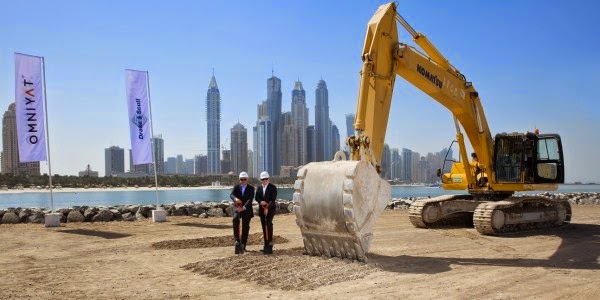According to the new index, Emirates NBD Dubai Economy
Tracker, implemented to measure Dubai’s
the economic growth rate of its non-oil sector; the emirate marked a slight
decrease during April.
The new index was officially introduced by the emirate’s banks a few days
ago, and it said to cover more than 600 companies within Dubai’s private
sector. The purpose of the index is to measure the performance of Dubai’s
private non-oil based sector on a monthly basis.
Dubai’s new index is founded on the Purchase Manager Index, which has
been adopted by a variety of other countries. According to Markit, the
assembler of the index, all of Dubai’s private companies, regardless of size,
will be monitored in order to measure the emirate’s economic growth. The aim to
create a precise and accurate picture of the performance of Dubai’s non-oil
based economy.
Besides measuring Dubai’s economic performance, the DubaiBusiness Activity Index also records the emirate’s employment rate. According
to the index, Dubai’s employment rate dropped slightly from March to April from
60.6 to 57.2 respectively. However, even though the employment rate dropped, it
is still above 50.0 indicating the emirate’s economy is expanding rather than
contracting.
The index has revealed that although the slight slump Dubai has
experienced, its private sector growth rate is resilient and strong when
compared to other international economies. It must also be taken into account
that the emirate’s economy remains strong regardless of the drop in oil prices
that has influenced other oil-based economies.
The Real Estate Tracker results also reveal that Dubai’s property market
will experience a slight strengthening. The tracker, which measures the rate of
growth of the emirate’s property market, is conducted every two months. The
tracker surveys around 600 domestic properties and 70 real estate agents.
According to the property tracker, property values will show a small increase
in value as well as demand.


